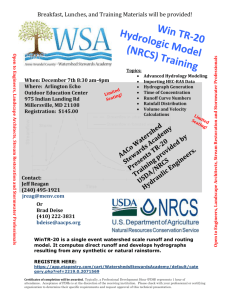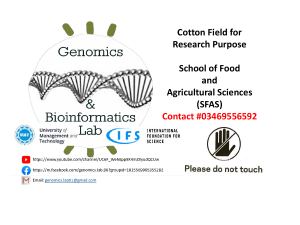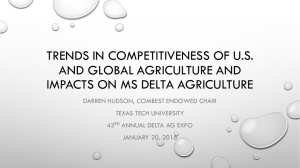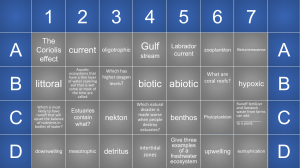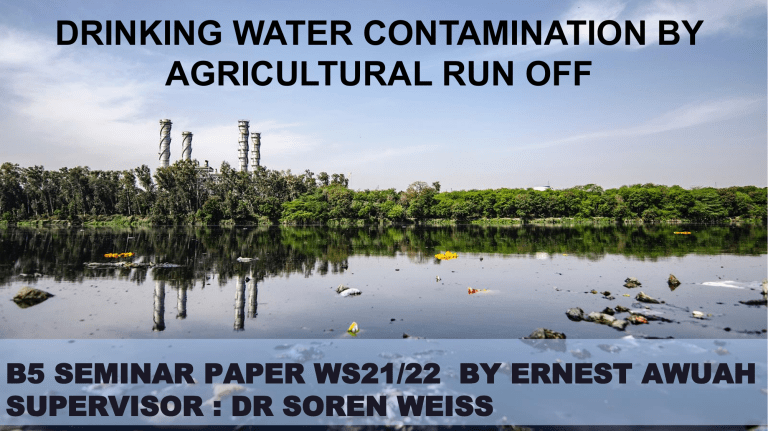
DRINKING WATER CONTAMINATION BY AGRICULTURAL RUN OFF B5 SEMINAR PAPER WS21/22 BY ERNEST AWUAH SUPERVISOR : DR SOREN WEISS PRESENTATION OVERVIEW Introduction Causes agricultural runoff on drinking water Effects of agricultural runoff on drinking water Mitigating surface water contamination by agricultural runoff Subsidies as an economic instrument Efficiency evaluation Conclusion INTRODUCTION Availability of water is equally important as its quality. Lack of quality water in the rural part of the country Credits: Photo courtesy of Saha Global. Closeness of drinking surface water bodies to farmlands. CAUSES OF SURFACE WATER CONTAMINTION Agricultural Runoff : It is simply the washing away of pollutant from the surface of soils in farmland into nearby water bodies. Examples of these pollutants include: fertilizers pesticides other forms of agrochemicals such as herbicides, insecticides, weedicides. Other causes may include sewage from households and waste from industries. EFFECTS OF AGRICULTURAL RUNOFF ON SURFACE WATER •Pollution of surface water •Eutrophication of surface water •Death of aquatic organisms • Human health implications Figure 3. Source: Modern Ghana media communication ltd. Accra Ahana. MITIGATING SURFACE WATER CONTAMINATION BY AGRICULTURAL RUNOFF. These pollutants can be prevented from reaching the surface water by: Avoiding or reducing the use of agrochemicals such as pesticides on farmland especially to those bordered by water bodies. Adopting Integrated Pest Management practices such as; 1. The use of resistant crops 2. Crop tillage 3. Biological control methods. SUBSIDIES AS AN ECONOMIC INSTRUMENT Subsidies are "payments or other financial benefits provided by governments, or by a public body, to a specific industry, sector, or producer" (OECD, 2019). Subsidies can come in different forms such as: Agricultural subsidies, Energy subsidies, Housing subsidies etc. Subsidies on Agriculture can also be given by government in the form of money or the provision of tools or items needed in carrying out the program Subsidies as a tool for internalizing market failure or externalities. Crop tillage as an alternative practice to the use of pesticides. SUBSIDIES AS AN ECONOMIC INSTRUMENT SUBSIDIE PROGRAM STRUCTURE APPLICATION FOR SUBSIDY ADVANTAGES OF CROP TILLAGE Reduces weed growth IMPROVED WATER QUALITY SURFACE RUNOFF REDUCTION APPROVAL BY GOVERNMENT Enhance soil structure Reduces the rate of surface runoff PRACTICING CROP TILLAGE Helps produce healthier crops EFFICIENCY EVALUATION Static Efficiency is not achieved. Ecological efficiency is achieved. Dynamic efficiency is achieved. The program is not administratively efficient. CONCLUSION Surface water contamination is an alarming issues and agricultural runoff is a contribution cause. Adoption of other farm practices such as crop tillage can help reduce agricultural runoff. Subsidies is an economic tool that can help mitigate this environmental problem by ensuring that these practices are implemented. The subsidy program does not guarantee total efficiencies therefore the need to for government to intensify the monitoring aspect of the program.
